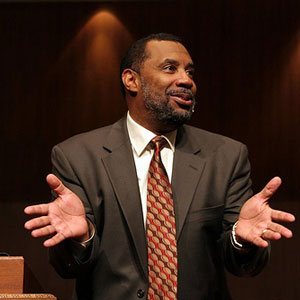Many skeptics and seekers of the Christian faith often stop short because they have challenging questions about the resurrection of Jesus Christ. We need to present biblical facts about the resurrection to our skeptical friends, family or co-workers. New Testament scholar, teacher, apologist, and speaker Dr. Jeremiah Johnston shares his advice on conversation starters:
“I can’t start with 1 Corinthians 15 as much as I’d like to, I don’t start with, ‘Well this is what the Bible says…’ A lot of the people I debate don’t believe the Bible, so I start with extra biblical confirmations of the historical fact of the resurrection of Jesus.”
The Resurrection was the event that changed the world.
“The best explanation for what happened that first Easter Sunday was that Jesus physically rose from the grave.”
By gaining an understanding of the 1st century world we can understand why and how the early church spoke of the Resurrection.
“You have to understand that in a Roman mind the body was disgusting, resurrection was not trendy. Today in the entertainment world, zombies, resurrection, etc. has never been more popular profitable, but in the 1st century world, this is something that people loathed. No one outside of Judaism or ancient Christianity believed in resurrection of any kind.
“The church could not have picked a worse place to start and their message saying, ‘A Roman criminal was massacred on a cross, died and physically rose from the grave and we’re going to do that too.’ That was the worst talking point to start on, so why did they start there? Because that’s actually what happened.”
The significance of the resurrection of Christ can also be seen though the Greek word koimeterion, which means cemetery.
“Do you know who founded this word? Christians did. Christians began calling their burial grounds koimeterion cemetery because it meant sleeping rooms, dormitories, why? Because people would wake up, they would rise from the dead! And so rather than calling it a mausoleum as they did in Latin or some other memoriam, Christians began to be buried together. So not only did they worship together, they were buried together in places called cemeteries.”
“So in town after town, city after city, we see the imprint of the power of the resurrection of Jesus, even in what we call our burial ground, cemetery. Why? Because through the power of Jesus Christ, we were promised more than two dozen times in the New Testament, we will be raised like Christ.”











